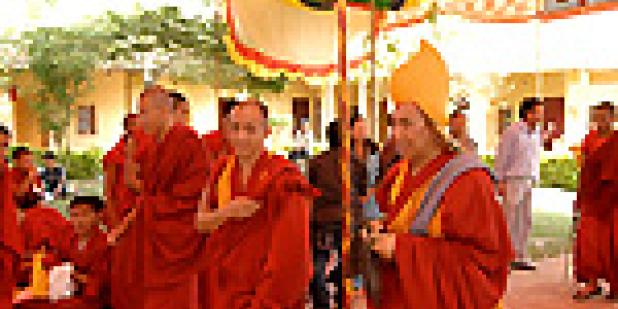Happy Lunar New Year from the USC US-China Institute!
Tibet: What's Really Happening? How To Respond?
Religious Leader from the Tibetan Exile Community Speaks at USC
Where

What does a Tibetan Buddhist Lama think of current events in Tibet? The answers, from Khen Rinpoche Geshe Kachen Lobsang Tsetan, may surprise you.
Geshe Lobsang Tsetan was a young monk in Tibet when the People's Liberation Army suppressed an uprising in 1959. Some 80,000 Tibetans followed the Dalai Lama into exile in India. Geshe Lobsang Tsetan made the journey into exile in 1960. He continued his Buddhist studies. In 2005, the Dalai Lama asked him to serve as the abbot of Tashi Lhunpo Monastery in exile, in Southern India.
The event will open with remarks by Rabbi Susan Laemmle, dean of Religious Life. Clips will be shown from the award-winning documentary Tibet: Cry of the Snow Lion. And a discussion with the Lama will be moderated by Professor Lisa Leeman, School of Cinematic Arts.
Admission is free. Refreshments will be provided.
RSVP: tibetan.events@yahoo.com
Sponsored By: The Religion, Identity and Global Governance (RIGG) Project, the USC Center for Civic Culture and Religion, USC Office of Religious Life, USC School of Cinematic Arts, and the USC Annenberg School for Communication
Featured Articles
We note the passing of many prominent individuals who played some role in U.S.-China affairs, whether in politics, economics or in helping people in one place understand the other.
Events
Ying Zhu looks at new developments for Chinese and global streaming services.
David Zweig examines China's talent recruitment efforts, particularly towards those scientists and engineers who left China for further study. U.S. universities, labs and companies have long brought in talent from China. Are such people still welcome?






